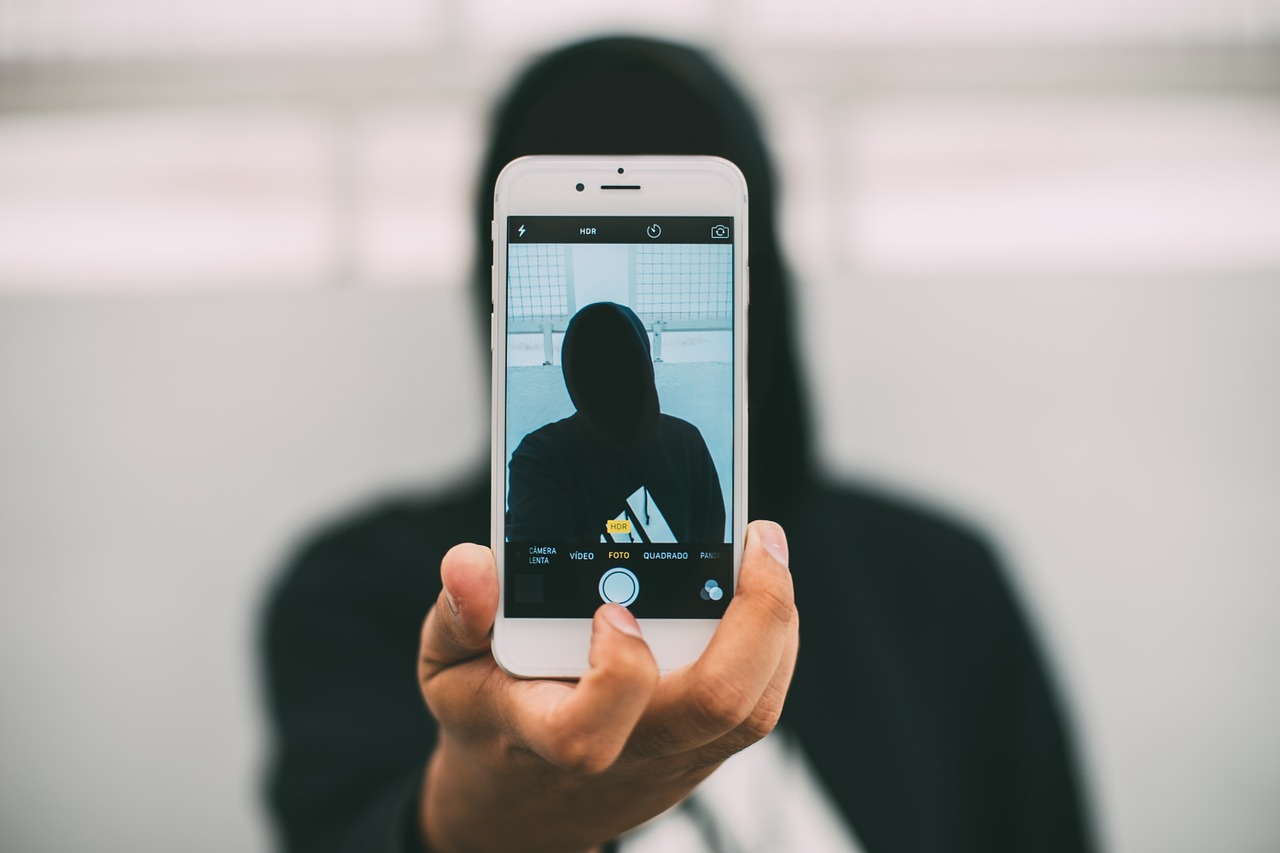Do you take online privacy seriously? Are you worried about personal information about you winding up in online public databases? More importantly, are you concerned about your sensitive information getting into the hands of cybercriminals looking to exploit it?
A lot of people think that their online privacy is protected, but they don’t actually take proper steps for ensuring it. They think their private information is truly private, but they don’t realize that sharing stuff on social media, using public Wi-Fi hotspots, or opening spam emails could potentially lead to identity theft.
Cybercriminals are restless. They don’t stop trying to find new ways of stealing personal and sensitive information for their criminal gain. This is why it is paramount that you take certain precautions, and successfully prevent the bad guys from targeting you.
Here are the most important steps you should take to ensure your privacy is protected online.
Use Strong Passwords for Everything
Using strong passwords for all your accounts cannot be overstressed. If you use your name, address, birthday, pet name, or anything similar, someone could easily guess your password.
Come up with something impossible to guess, and be sure to use both upper and lower letters, symbols, and numbers. Also, be sure to change your passwords regularly for a higher level of protection.
Most importantly, don’t use the same password for more than one account. If someone manages to crack it, they could gain access to all your accounts and cause all sorts of trouble.
It can be tough remembering all your passwords, but it’s more than worth it. That being said, don’t ever store them on your computer or phone. If you can’t store them in your mind, write them down and hide the note where no one would ever think of looking.
Use a Password Manager
The best way to protect your online accounts is to use a password manager. It will generate a random master password for all your accounts, so no one will ever be able to gain access to them.
If a potential hacker somehow manages to crack your master password, your password manager will instantly change all your connected accounts’ passwords and generate a new master password. It will continue to do so until the bad guys give up.
It can take them about a month to crack very strong passwords, and your PM won’t ever give up generating new ones.
Be Smart About Password Security Questions
Answering honestly to password security questions is a surefire way to hand your accounts to cybercriminals. Those questions exist to keep out the intruders but, in reality, there’s nothing secure about them. That is if you give correct answers.
So, simply lie. Come up with something you’ll easily remember, instead of giving your mother’s real maiden name, your pet’s real name, or your favorite school teacher’s real name. Use, for instance, the title of your favorite book, and remember to apply the strong-password rules to make it impossible to crack.
Use Two-Factor Authentication (2FA)
Here’s another extra layer of protection to add to your accounts. If you enable two-factor authentication for logging into your accounts, you’ll receive a code on your phone after entering your username and password. You’ll then need to enter the code in the appropriate box to verify it’s you trying to log in.
That way, your username and password won’t mean anything to potential hackers, unless they manage to get their hands on your mobile phone, so be sure to keep it safe.
Don’t Forget to Log Out
Rarely anyone logs out of their accounts these days, especially on mobile. We’re all always logged into Facebook, Facebook Messenger, Viber, and other platforms where we communicate with friends all day long. It’s not very convenient to constantly log in and out of everything, is it?
However, the time you spend on logging out will definitely save you a great deal of trouble down the line. If you stay logged in, those websites could see what you’re up to online. And no, closing a window or app won’t help, because those sites and apps will keep running in the background.
Install Antivirus Software
Antivirus software is designed to protect your computer or phone against potential security threats. So, it goes without saying that you should install one on every device you’re using.
It will effectively prevent anyone from breaching into your systems and stealing sensitive information. It will also analyze all the potential weak spots in your systems so that it can help you strengthen them and keep the bad guys out.
Be sure to update your antivirus software regularly, because updates always come with bug fixes and security patches that effectively address any potential vulnerabilities.
Install Only Official Apps
When installing any app on your computer or phone, make sure you always use the official sources. For your computer, be sure to always install official apps from Microsoft or Apple, and use Google Play or App Store for your smartphone (Android and iOS, respectively).
There are plenty of mobile games that can be tempting, as well as other apps you’d like to have on your phone. For instance, if you want to hook up with a girl online, you would certainly want to install an app that would allow you to send instant messages on dating sites.
But there are lots of those apps that aren’t really legitimate, nor safe to use. You could fall victim to a phishing attack and seriously compromise your privacy. That’s why you should conduct a thorough research first to find the best dating apps like Tinder and then install their official, legitimate apps.
Install Browser Extensions for Online Privacy
You may be familiar with the importance of visiting websites that use the HTTPS extension. HTTPS encrypts the communications between a website and its users, but even this isn’t so secure anymore.
A fraudulent website could redirect its users from HTTPS to an unencrypted HTTP, which is why you should install the HTTPS Everywhere extension. It works in Google Chrome, Firefox, Opera, and Firefox for Android.
You should also install the Privacy Badger extension, which automatically blocks invisible trackers, as well as uBlock, which blocks ads, pop-ups, and trackers, and it makes your browsing much faster. It’s available for Google Chrome, Firefox, Safari, and Mac.
Browse in Incognito Mode
Browsing the Internet in privacy mode will prevent any third-party from gathering information about you. During your incognito browsing session, your browser won’t store any cookies, won’t allow pop-ups, won’t create web caches of temporary Internet files, and won’t record your browsing history.
So, the next time you open your browser, remember to open a window in the privacy mode. This alone won’t prevent potential hackers from targeting you, so make sure you follow the other tips mentioned here.
Speaking of browsers, you should consider using Tor or DuckDuckGo. They don’t store any personal information, don’t track their users, don’t allow any ads and pop-ups, and don’t track their users – ever.
They use advanced encryption for protecting their users’ online activity and privacy, and they route your traffic to a series of servers, effectively hiding your IP address.
Clear or Block Web Cookies
Websites store web cookies on your computer to learn more about you and improve your website experience. They gather information about user behavior, product preferences, the sites you visit, what you like and don’t like so that they can better target you for their ads and compel you to purchase from them.
Now, these web cookies are harmless, and can actually be very useful to you. However, many websites share all that user information with third-party sites, which then use it to also send you targeted ads.
You can prevent all this by clearing your stored web cookies. If you don’t want to delete all of them, because some provide you with a seamless shopping experience, for instance, go to your browser’s cookie settings and delete everything you don’t need.
However, this definitely doesn’t make you anonymous online. If you want to be completely invisible online, simply block all the cookies.
Don’t Use the Auto-Fill Option
The auto-fill option is yet another of those very convenient features that make our online experience seamless. If you’re a frequent online shopper, it may be annoying having to type all your contact information every single time when you’re purchasing something.
However, turning off the auto-fill option will protect your identity online, so you really shouldn’t think about those few extra seconds you’ll spend typing your information when completing online forms.
Why is this important? Because for the auto-fill option to work, your personal information must previously be stored someplace else. And if it’s stored somewhere online, it’s very easy for potential hackers to dig it out and steal or misuse it.
Don’t Disclose Personal Information on Social Media
First things first: you should make sure your every social media account is private. For instance, Facebook is public by default, but there are lots of security settings to keep every little thing private.
Another crucial thing is to avoid disclosing your personal information on social media. A lot of people put their home and email addresses, and phone numbers in their account bio, which is something you should never do, for very obvious reasons.
Cybercriminals just love visiting those accounts, as they give them the means to steal and misuse sensitive information. So, don’t be one of those people who disclose every single detail about them online. Leave what matters to yourself.
Watch Out for Spam Emails
Spam emails may seem completely innocent, but they almost never are. More and more hackers are using email phishing scams to install malware on people’s devices and then steal sensitive information.
So, be sure to always delete every spam email you receive. Don’t open them, and especially don’t click on any links. It is precisely through those links that cybercriminals manage to install malware on the targeted devices.
That malware can then extract any sensitive information, and even record keystrokes to discover usernames, passwords, social security numbers, credit card details, and so much more.
This is very alarming because you’re not really aware of that malware until some serious trouble happens. Therefore, beware of those emails and don’t be an easy target for hackers.
Turn Off Your GPS
Turning off your GPS is an excellent way to prevent geotagging and protect your privacy. Disclosing your location online will help criminals know where you are at any moment, which they can use to follow you and steal your phone, tablet, credit card, or anything else of value. They can even know when you’re not at home to go and rob you.
If you need to find your way around a new city, for instance, GPS can help you, but it can be a huge risk otherwise. There are plenty of offline map apps you can use instead, which work perfectly without GPS.
Don’t Use Public Wi-Fi
It can be very convenient to connect to the Internet via a public hotspot, but you should seriously avoid doing so. This is because public Wi-Fi connections are not encrypted, so potential hackers could easily target you if you use them.
That being said, if you do use any public Wi-Fi, don’t ever access your bank accounts or any financial app. It’s simply not worth it, as it can lead to identity theft and serious financial loss.
Use a VPN
The absolute best way to protect your privacy online is to use a VPN (Virtual Private Network). A VPN will hide your IP address, making you completely anonymous online and preventing anyone from tracking you. It will even hide your IP from your ISP, that way even preventing that frustrating bandwidth throttling.
A VPN will encrypt all your connections, even when you use public Wi-Fi. Its encryption will render it impossible for anyone to steal your sensitive data because they’ll only intercept unreadable jargon that makes absolutely no sense.
Are you ready to become completely anonymous online? Start following all these tips right now and take your online privacy to a whole new level.



